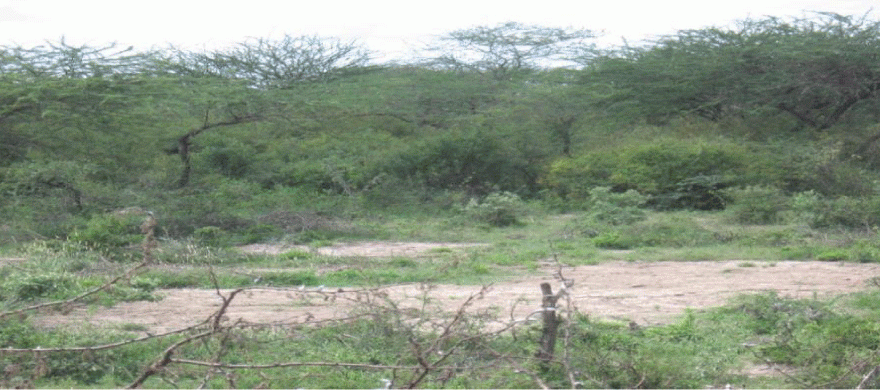
Each and every organism in an ecosystem has a critical role to play and contributes to preserving the health and productivity of an ecosystem. Biodiversity, on the other hand, indicates all species and living things on Earth or in a specific ecosystem that denotes the diversity of living species on Earth, which consist of plants, animals, bacteria, and fungi.
Unlike other planets, Earth is so rich in biodiversity that many species have yet to be discovered, and many species are being threatened with extinction due to human activities, putting the Earth’s magnificent biodiversity at risk. Therefore, a careful relationship between biodiversity and the ecosystem is imperative for living things.
Ecosystems offer a variety of goods and services to human beings. It provides goods such as water, food, fuel, construction material, and medicinal plants while Ecosystem services offers generally improvements in the condition or location of things of value. These include things like the maintenance of hydrological cycles, cleaning air and water, the maintenance of oxygen in the atmosphere, crop pollination, and even things like beauty, inspiration, and opportunities for research.
Ethiopia is rich in biodiversity species that hold ecological and economic significance. The country is one of the most diverse nations in the world and has various plant species. The country is also the origin of important crop species. Despite it is significance, the ecosystems particularly the biodiversity of the world have been become negatively impacted by human activities such as, habitat, air, and water pollution, habitat fragmentation, water diversion, fire suppression, and the introduction and invasive species.
Despite its biodiversity richness, some of the species have been lost or extinct due to climate change, erosion, land degradation, and so on. While a balanced and properly managed ecosystem is important, currently the ecosystem of the country has been challenged by the overall activities of human beings.
Besides, the biodiversity of the country is challenged by invasive alien weed species. Invasive species are recognized as one of the major threats to native species and ecosystems in Ethiopia. Invasive alien plant species are not native to a specific ecosystem and whose introduction threatens biodiversity, food security, health, or economic development of the country. Invasive species are of concern because of their capability of spreading fast, their high competitiveness, and their ability to colonize new areas within short periods. The nature and severity of the impacts of these species on society, economic life, health, and national heritage are of global concern.
Ethiopian Biodiversity Institute Research, Dissemination, and Project Implementation Director and Botanist Tesfaye Awas (PhD) says the invasive of alien weed species affects native species and ecosystems in Ethiopia. The adverse effect of invasive alien weeds has been seen on plants that are important to medicine. Hence, it is imperative identifying alien weeds and look for an immediate solution for them.
Indeed, around 35 invasive alien weed species have been identified in Ethiopia so far. Boy, G., & Witt, A. (2013) in their article entitled “Invasive Alien plants and their management in Africa” stated some of the alien weeds which are found in Ethiopia: Prosopis juliflora (Sw.) DC., Parthenium hysterophorus L., Eichhornia crassipes (Mart.) Solms, Lantana Camara L., Opuntia ficus-Indica (L.) Miller, Opuntia stricta (Haworth) Haworth, Argemone mexicana Sweet, Ageratum conyzoides L., Senna occidentalis (L.) Link, Datura stramonium L., Mimosa diplotricha C. Wright, M. pigra L., Cryptostegia Grandiflora (Roxb.) R. Br, Acacia saligna (Labill.) H.L. Wendl., Nicotiana glauca Graham, Xanthium strumarium L., Caesalpinia decapetala (Roth) Alston, Pistia stratiotes, Cirsium vulgare (Savi) Ten, and Xanthium spinosum.
Ethiopian Meat and Dairy Industry Development Institute Deputy Director Tariku Teka said on his part that it is important to preserve and conserve the biodiversity resources of the country since it helps to adjust the ecosystem of the nation. Because invasive alien weed species have threatened not only the plant species but also the animal resources of the country.
It is true that alien weed species have been posing negative impacts on agricultural lands, rangelands, national parks, waterways, lakes, rivers, power dams, roadsides, and urban green spaces with great economic and social consequences.
Ethiopian Biodiversity Institution Director Dr. Melese Mario told The Ethiopian Herald that alien weed species, along with extreme poverty, climate change, over-exploitation of natural resources by the growing population of the country, over-use of marginal lands, and deteriorating soil, have challenged the biodiversity resources of the country.
Invasive alien species are the most dangerous for the loss of biodiversity in Ethiopia. Losing biodiversity means a lot to Ethiopia since the loss of any species will mark the loss of both the physical and conceptual knowledge of the biodiversity items, he added.
The Oromia Regional Agricultural Research Institute Agricultural Transformation Coordinator Dr. Samuel Tufa said that alien weed species that are imported in various ways are affecting the ecosystem since no action is taken without spreading them.
Alien weed species can be controlled without spreading and damaging the environment, nevertheless, dangerous weeds are causing damage to crops and pastures in the region. Besides, invasive alien weeds can be prevented by pesticides; However, the dangerous weeds remain hidden in the ground for long periods of time and are said to have a high potential for reproduction.
According to Dr. Samuel, the weeds are producing a large number of seeds and due to their short-term invasive nature, they are having a negative impact on the agricultural sector as other plants do not grow in their area. Furthermore, the weeds, which do not have the habit of coexisting with other plants, invade local vegetation, alter soil properties and make the environment unsuitable for plants.
The alien weeds are imported to Ethiopia from various countries with aid grains, imported machinery, and other reasons and grow along the road and in the fields. Hence, it is imperative that prioritize the extent of damage caused by weeds, especially the extent of damage to plants, how many hectares of land have been infested with weeds, and the number of weeds.
Taking invasive alien weeds challenges into account, the country should look for a sound solution for it. Especially, any concerned body should focus on nature-based solutions that are key to protecting, sustainably managing, and restoring the ecosystems. More importantly, creating awareness on how to avoid and carefully control invasive alien species is imperative to ensure the conservation of biodiversity.
BY EPHREM ANDRAGACHEW
The Ethiopian Herald 8 May 2022





